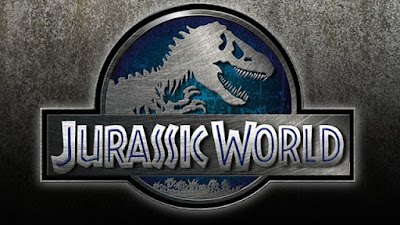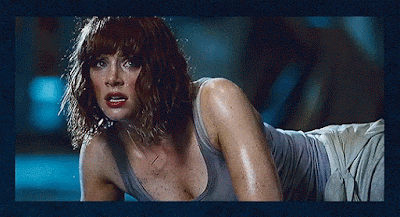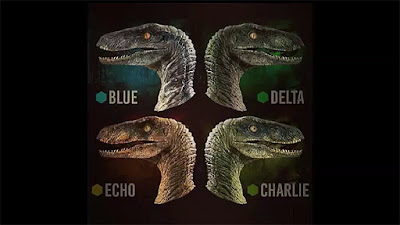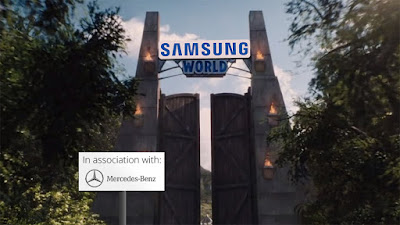Spoiler alert: Plot elements for Casino Royale, Skyfall and Spectre are detailed throughout this review so watch the films before reading!
 |
| 'Spectre' starring Daniel Craig (directed by Sam Mendes) |
I have to admit, I went in to Spectre thinking that I wouldn’t like it very much. It’s not that I doubted Mendes’ ability as a director, or Craig’s performance as Bond (he is, actually, my favourite Bond), it was because I felt that Skyfall could have been a great end to this version of the Bond character.
When Casino Royale was released in 2006 it marked a reinvention of the Bond series. Daniel Craig’s Bond was younger, fitter and more brutal than any past incarnation. From that tense, black and white opening sequence to the memorable final scene, it charted Bond’s rise to Double 0 agent and detailed the actions and betrayals that would form the cold, calculated yet damaged Bond that will surely come to define Craig’s time as the character.
With Skyfall, both the script and direction revelled in this darker and grittier take on Bond. If Casino Royale was the creation of Bond for a new age, Skyfall was his death and rebirth (and yes, I’m going to casually skip over Quantum of Solace as if it never happened because… well, it shouldn’t have). Skyfall built brilliantly on where Casino Royale ended with Bond returning as an aging, damaged man. Not only was he put through gruelling physical punishment, but the fragility of his mental state was also laid bare as the ghosts of his past were dug up.
 |
| Bond is tested both emotionally in Casino Royale (top) and physically in Skyfall (bottom) |
In a stark comparison then, Spectre takes all of these elements and pushes them to the side as it retreats back to the classic Bond formula of old. The weary Bond of Skyfall is replaced by one much stronger and fitter, and the naïve romantic from Casino Royale is swapped for the womanising and irresistible Bond reminiscent of the Roger Moore era.
The personal and human elements of past films have also been substituted for a more typical world-saving, globe-trotting plot that sees Bond and MI6 fend off against a worldwide terrorist organisation. It is thrilling, action packed and most of all fun, but it feels out of place when compared to Craig’s previous outings and the version of Bond that was developed in those.
Despite its different direction and my initial reservations however, I tried to keep an open mind for Spectre, and as such found it to be an enjoyable action romp and technically a near perfect film. Craig’s performance is still on point, and Christoph Waltz is both thrilling and chilling as Oberhauser/Blofeld, it’s just a shame he isn’t given anywhere near enough screen time as he should have been.
The action sequences, and there are a lot more compared to Skyfall, are exhilarating and Mendes clearly enjoyed the more outlandish scripting for these segments. From an alpine chase sequence featuring a wing-less plane to a brutal and tense fist fight on a train, there is variation, excitement and a sense of physicality throughout. The opening sequence during Mexico’s ‘Day of the Dead’ festival also deserves a mention for its stylish long take opening shot and great visual design.
I also really enjoyed seeing more of Ben Wishaw’s Q this time around, still suitably bookish but wittier and busier than he was in Skyfall. Certain characters were underdeveloped however, with Andrew Scott’s ‘C’ largely one dimensional and Monica Bellucci’s Lucia essentially useless.
Spectre’s plot was something that I also liked, but sadly it wasn’t utilised effectively. Surveillance plays a large role in the story and is a topic very relevant to today’s society. In Spectre, Waltz’ Blofeld has created a global intelligence network easily capable of besting any government effort. He has total control over information and poses a clear threat, and yet Spectre never really goes anywhere with this.
At one point in the story Blofeld has captured Bond and Madeleine Swann (played brilliantly by Lea Seydoux). He shows off the extent of his surveillance network to the pair but then does nothing useful with it. I was expecting him to ‘out’ Bond to the world as a dangerous rogue, and to place MI6 and other national security agencies in chaos by turning public opinion against them, but instead he performs some admittedly brutal yet seemingly ineffective surgery on Bond before getting blown up. For all of Blofeld’s careful plotting and patience, he ends up doing very little.
This unsatisfying tail off is something that also affects the film’s subplot, involving M’s defence of the Double 0 program to C, Blofeld’s secret apprentice and head of the Joint Intelligence Service. C wants to abolish the Double 0 program due to its archaic nature, believing surveillance and digital technology to be the future. In the end though, after having his ‘Nine Eyes’ surveillance network shut down rather easily, he is killed off and nothing more said about the uncertain future of Double 0 agents. Spectre takes one of its most interesting elements and fails to create any tension or excitement with it, which is sadly a theme all too similar throughout the film.
The personal and human elements of past films have also been substituted for a more typical world-saving, globe-trotting plot that sees Bond and MI6 fend off against a worldwide terrorist organisation. It is thrilling, action packed and most of all fun, but it feels out of place when compared to Craig’s previous outings and the version of Bond that was developed in those.
Despite its different direction and my initial reservations however, I tried to keep an open mind for Spectre, and as such found it to be an enjoyable action romp and technically a near perfect film. Craig’s performance is still on point, and Christoph Waltz is both thrilling and chilling as Oberhauser/Blofeld, it’s just a shame he isn’t given anywhere near enough screen time as he should have been.
The action sequences, and there are a lot more compared to Skyfall, are exhilarating and Mendes clearly enjoyed the more outlandish scripting for these segments. From an alpine chase sequence featuring a wing-less plane to a brutal and tense fist fight on a train, there is variation, excitement and a sense of physicality throughout. The opening sequence during Mexico’s ‘Day of the Dead’ festival also deserves a mention for its stylish long take opening shot and great visual design.
I also really enjoyed seeing more of Ben Wishaw’s Q this time around, still suitably bookish but wittier and busier than he was in Skyfall. Certain characters were underdeveloped however, with Andrew Scott’s ‘C’ largely one dimensional and Monica Bellucci’s Lucia essentially useless.
Spectre’s plot was something that I also liked, but sadly it wasn’t utilised effectively. Surveillance plays a large role in the story and is a topic very relevant to today’s society. In Spectre, Waltz’ Blofeld has created a global intelligence network easily capable of besting any government effort. He has total control over information and poses a clear threat, and yet Spectre never really goes anywhere with this.
At one point in the story Blofeld has captured Bond and Madeleine Swann (played brilliantly by Lea Seydoux). He shows off the extent of his surveillance network to the pair but then does nothing useful with it. I was expecting him to ‘out’ Bond to the world as a dangerous rogue, and to place MI6 and other national security agencies in chaos by turning public opinion against them, but instead he performs some admittedly brutal yet seemingly ineffective surgery on Bond before getting blown up. For all of Blofeld’s careful plotting and patience, he ends up doing very little.
This unsatisfying tail off is something that also affects the film’s subplot, involving M’s defence of the Double 0 program to C, Blofeld’s secret apprentice and head of the Joint Intelligence Service. C wants to abolish the Double 0 program due to its archaic nature, believing surveillance and digital technology to be the future. In the end though, after having his ‘Nine Eyes’ surveillance network shut down rather easily, he is killed off and nothing more said about the uncertain future of Double 0 agents. Spectre takes one of its most interesting elements and fails to create any tension or excitement with it, which is sadly a theme all too similar throughout the film.
 |
| Christoph Waltz' Blofeld is a chilling but underused character |
These issues with the plot come down to the script, and it’s here that Spectre also falls apart in other areas. As I mentioned, Spectre harks back to the older Bond films in its style and format, but by doing so it creates problems for itself by failing to reconcile this lighter, more classic approach with the grittier and darker elements of the previous films.
In Casino Royale we saw Bond as a professional yet vulnerable agent, his womanising ways replaced by calculated, focused and efficient work. The entire third act of that film is given to his developing relationship with Vesper and her eventual betrayal. Far from the typical, objectified Bond girls in the older movies, this relationship was integral to the plot and to Bond’s development as a character.
Similarly, Skyfall decided to flip the Bond formula on its head by showing Bond as a man, one with faults both mental and physical. His declining skills with weapons and his age have an active effect on his work in the field and create consequences for himself and others.
Both of these films were filled with detailed characterisation that created the most fleshed out and interesting Bond to date.
In Spectre however, this same Bond is constrained by the older, tired formula from the pre-Craig films. He’s a womaniser and an unbeatable action hero. He jumps from one action scene to the next with little consequence, and yet we’re still given elements of that deeper, darker past. As Spectre tries to marry the two elements together it doesn’t quite fit and inevitably fails. Where Casino Royale and Skyfall redeveloped Bond for the modern era, Spectre instead takes us backwards to places we’ve already been.
For all of my issues with it though, Spectre isn’t a bad film, and is definitely a fun and exciting action movie. It’s engaging, well made and funnier than a lot of previous entries. But as I said, I went in to Spectre thinking that Skyfall was the perfect ending to the Daniel Craig era of Bond films, and I left thinking exactly the same thing. Had the Bond franchise been put on hold for a few years, returning with a new Bond and a new style, it would have worked much better than Spectre did. As it stands though, Spectre is entertaining but pales in comparison to previous films in this era of the franchise.
In Casino Royale we saw Bond as a professional yet vulnerable agent, his womanising ways replaced by calculated, focused and efficient work. The entire third act of that film is given to his developing relationship with Vesper and her eventual betrayal. Far from the typical, objectified Bond girls in the older movies, this relationship was integral to the plot and to Bond’s development as a character.
Similarly, Skyfall decided to flip the Bond formula on its head by showing Bond as a man, one with faults both mental and physical. His declining skills with weapons and his age have an active effect on his work in the field and create consequences for himself and others.
Both of these films were filled with detailed characterisation that created the most fleshed out and interesting Bond to date.
In Spectre however, this same Bond is constrained by the older, tired formula from the pre-Craig films. He’s a womaniser and an unbeatable action hero. He jumps from one action scene to the next with little consequence, and yet we’re still given elements of that deeper, darker past. As Spectre tries to marry the two elements together it doesn’t quite fit and inevitably fails. Where Casino Royale and Skyfall redeveloped Bond for the modern era, Spectre instead takes us backwards to places we’ve already been.
For all of my issues with it though, Spectre isn’t a bad film, and is definitely a fun and exciting action movie. It’s engaging, well made and funnier than a lot of previous entries. But as I said, I went in to Spectre thinking that Skyfall was the perfect ending to the Daniel Craig era of Bond films, and I left thinking exactly the same thing. Had the Bond franchise been put on hold for a few years, returning with a new Bond and a new style, it would have worked much better than Spectre did. As it stands though, Spectre is entertaining but pales in comparison to previous films in this era of the franchise.















